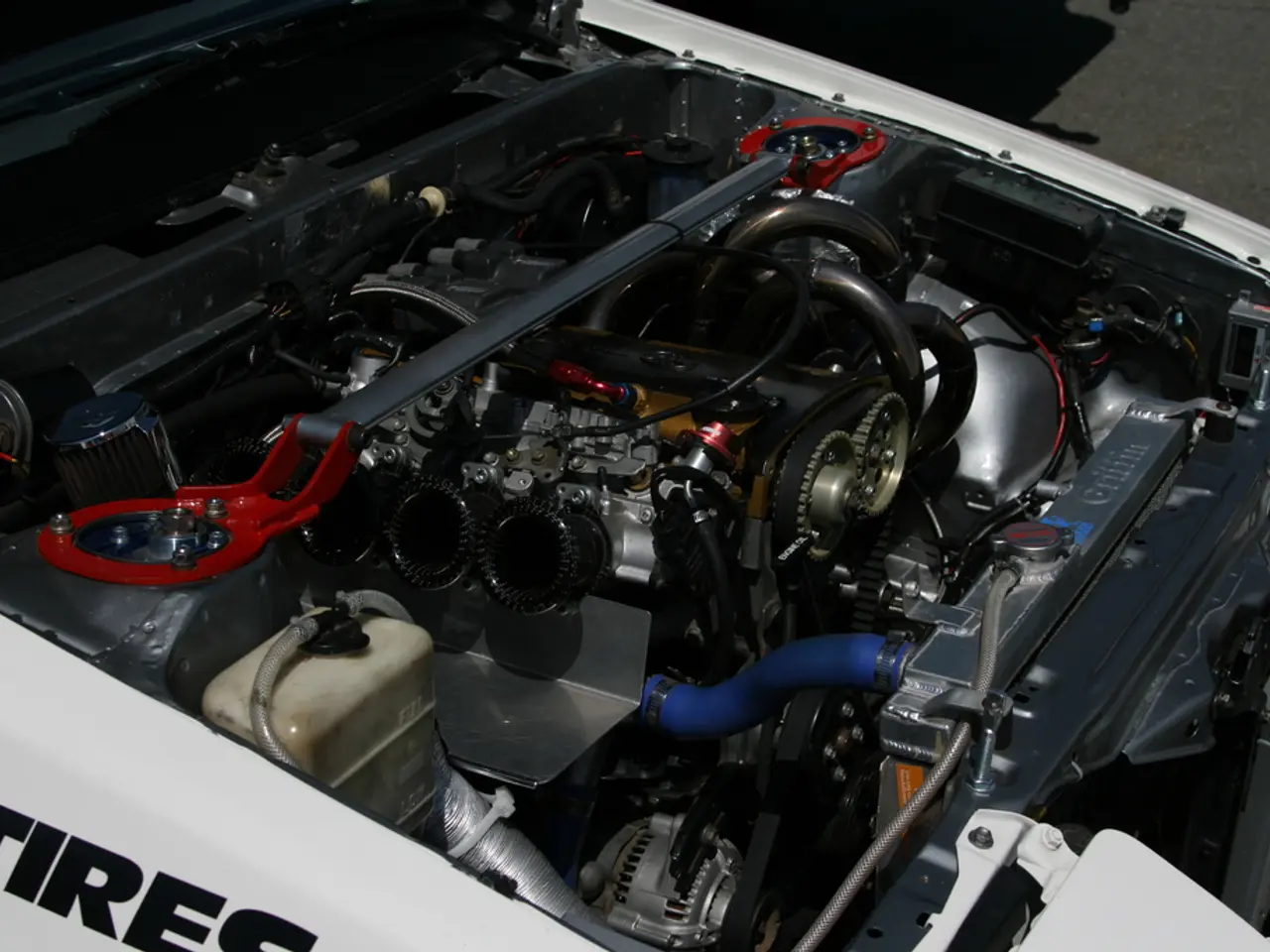Expanding Applications for Hydrogen Unveiled with increased Collaborations in Logistics, Manufacturing, and Dining Facilities
In Toyota City, Japan, the pursuit of carbon neutrality is not just a goal, but a reality in progress. The city is at the forefront of Toyota's broader initiatives, demonstrating a commitment to hydrogen technology and sustainable practices.
## Hydrogen-Powered Vehicles
Toyota is spearheading the development of hydrogen fuel cell trucks and hydrogen combustion engines, both offering zero carbon emissions. These innovative vehicles are already in use for parts distribution in Europe, providing a cleaner alternative to traditional transport methods. Furthermore, Toyota has developed a hydrogen combustion engine that delivers performance comparable to conventional sports cars, emitting only water vapour.
The company's commitment to hydrogen technology extends to the motorsports sector, with the GR Yaris Rally2 H2 Concept making its debut at Rally Finland, showcasing the potential of hydrogen in high-performance vehicles.
## Upcycling and Recycling Efforts
While specific initiatives in Toyota City are not detailed, Toyota's broader sustainability goals align with material recycling and waste reduction strategies. One such example is the Shimoyama Plant in Miyoshi City, Aichi Prefecture, which manufactures the tanks for Toyota's hydrogen-powered trucks. The plant is contributing to carbon neutrality by repurposing waste products from the manufacturing process. Resin waste is compressed and transformed into marble-esque items like flower vases.
## FCEV Heavy-Duty Truck Trials
Toyota City is now part of the FCEV heavy-duty truck trials, joining Fukushima, Tokyo, and more recently, Thailand. The trials aim to address ongoing issues with limited cargo space due to hydrogen tanks and the high price of hydrogen itself. Despite these challenges, the twin hydrogen fueling nozzle could potentially double the speed of hydrogen fueling, reducing downtime for commercial vehicles.
In addition to the heavy-duty trucks, a hydrogen-powered cooking device is available at the employee cafeteria in Toyota City. The FC heavy-duty trucks are also being tested with a hydrogen grill, as demonstrated in Toyota Times News videos.
The collaboration between Hino and Toyota in co-developing these trucks is in response to a request from Asahi Group Japan. The FC heavy-duty trucks are quiet and smooth-running, making them gentle on the environment and their long-distance drivers.
Overall, Toyota City's involvement in these trials and initiatives reflects Japan's and Toyota's broader commitment to sustainability and carbon neutrality through innovative energy solutions. The Shimoyama Plant's contribution to these efforts, through the use of hydrogen as fuel and the repurposing of waste products, is a significant step towards a greener future.
- Toyota's incorporation of hydrogen technology isn't limited to vehicles, as they’ve developed a hydrogen combustion engine that powers performance cars, emitting only water vapour, which aligns with the 'technology' and 'sustainable-living' concepts.
- Toyota's commitment to sustainable practices extends beyond vehicles, as they repurpose manufacturing waste at their Shimoyama Plant to create marble-like items, demonstrating a dedication to 'home-and-garden' and 'sustainable-living'.
- The city of Toyota is partnered with other locations in FCEV heavy-duty truck trials, aiming to tackle issues like cargo space and high hydrogen prices, showing a focus on 'industry' and 'finance' as they strive for carbon neutrality.
- Besides using hydrogen-powered vehicles for transportation, Toyota is also exploring its application in the 'food-and-drink' industry, as demonstrated by the hydrogen-powered cooking device available at their employee cafeteria.




